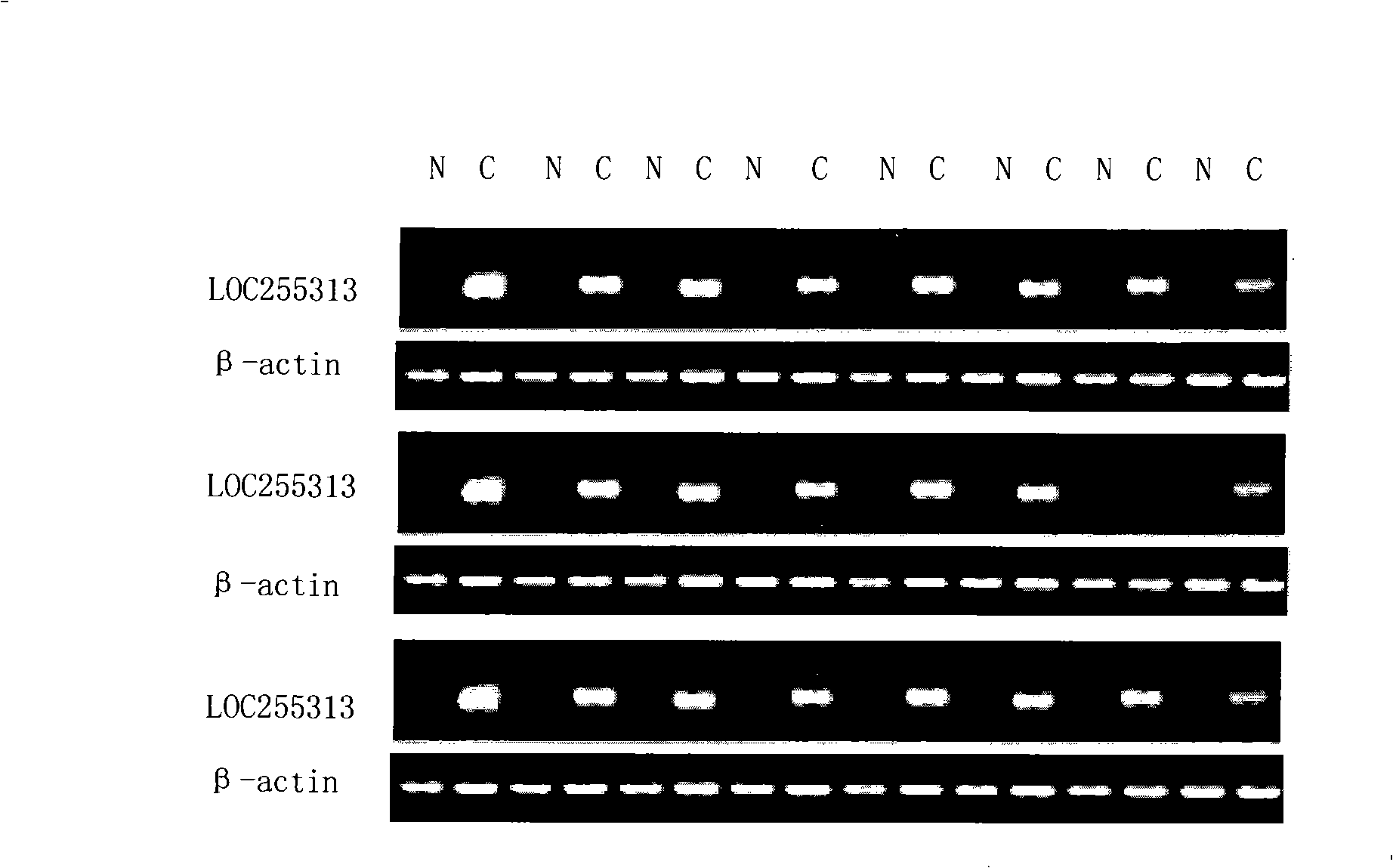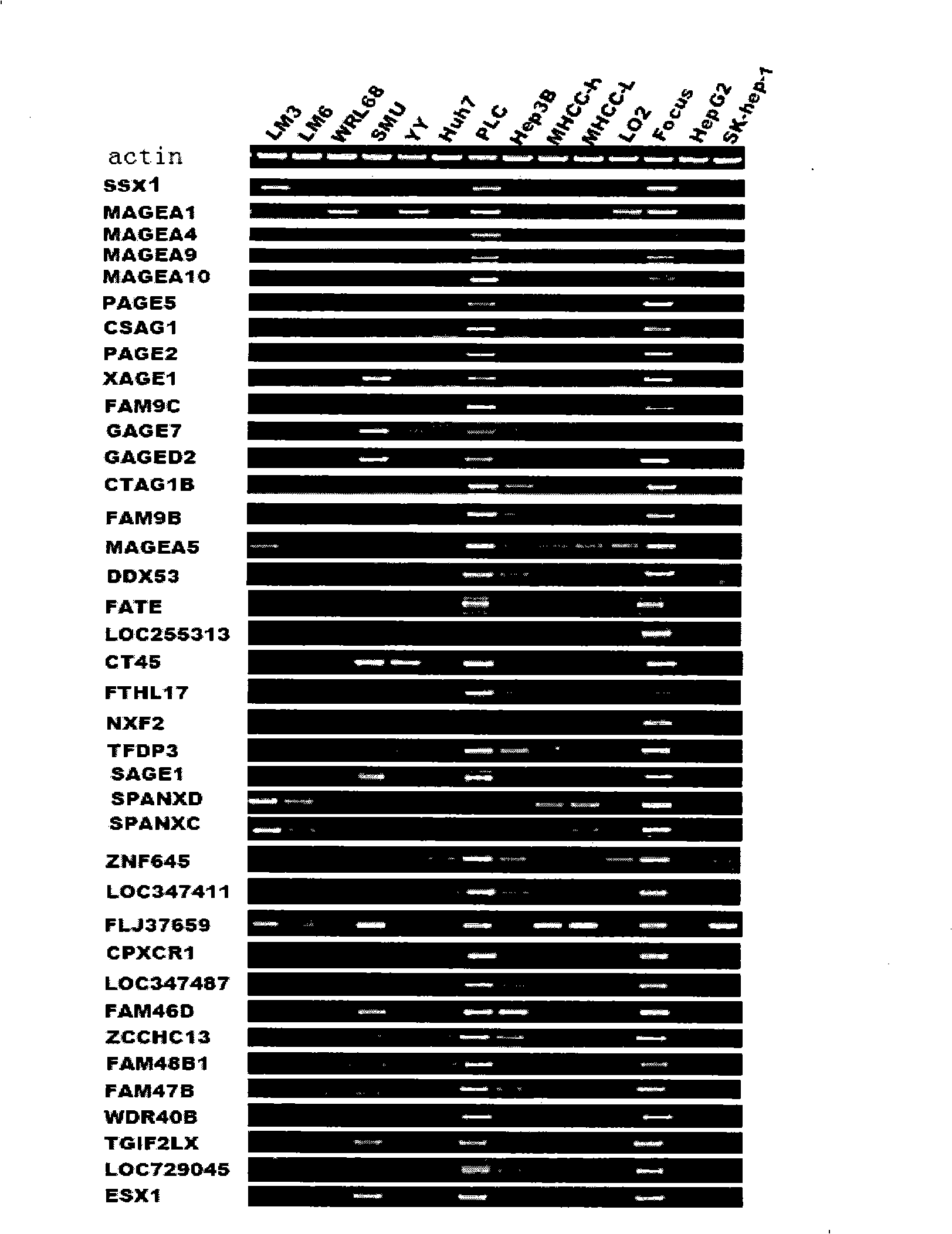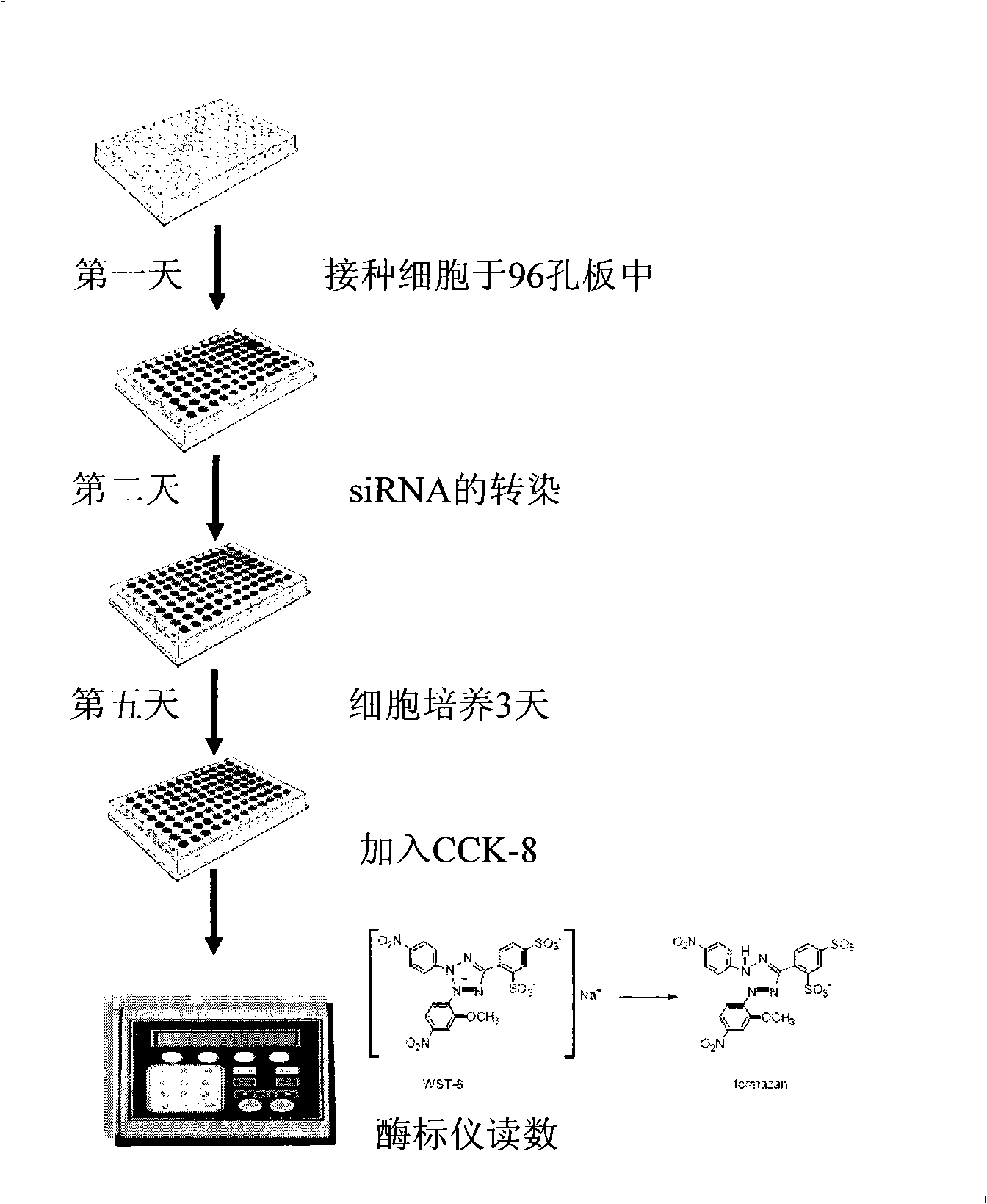Uses of LOC255313 gene
A gene and gene chip technology, applied in the application field of LOC255313 gene, can solve the problems of unclear relationship between liver cancer and achieve accurate diagnosis
- Summary
- Abstract
- Description
- Claims
- Application Information
AI Technical Summary
Problems solved by technology
Method used
Image
Examples
Embodiment 1
[0035] RT-PCR assay was used to detect the expression of LOC255313 gene in liver cancer tissues.
[0036] 1. Tissue isolation
[0037] The tissues used in the experiment came from 72 surgical patients with HBV-positive primary liver cancer expressing alpha-fetoprotein (RT-PCR confirmed that AFP was positive in liver cancer and negative in adjacent tumors). Once the surgically resected liver was isolated from the body, the lesion and surrounding paracancerous tissues 5 cm away were quickly excised and stored in liquid nitrogen (-80°C). The diagnosis of cancer and paracancer is based on pathological diagnosis.
[0038] 2. Total RNA extraction kit
[0039] The RNA extraction reagent uses TRIzol reagent (GIBCO / BRL), which is produced based on the one-step extraction method with acidic phenol. The utensils and water used for RNA extraction must be RNase-free to ensure an RNase-free environment in the experiment.
[0040] 3. RNA extraction steps
[0041] Dry-bake the pestle, ho...
Embodiment 2
[0052] Embodiment 2 real-time quantitative PCR experiment
[0053] Relative quantitative method was used to detect the expression difference of LOC255313 gene in liver cancer samples (Thermal CyclerDiceTM Real Time System TP800, Takara; Premix Ex Taq™, Takara). Real-time quantitative PCR detection showed that the expression level of LOC255313 gene in liver cancer tissues was significantly higher than that in paracancerous tissues, and the t test showed P<0.01. The results of this experiment show that liver cancer can be diagnosed by real-time quantitative PCR: PCR primers for LOC255313 gene are designed to detect the RNA content of LOC255313 gene in tumor tissue. A high RNA content indicates a high possibility of liver cancer, and vice versa.
Embodiment 3
[0054] Example 3 In situ hybridization
[0055] LOC255313 gene probe was used to carry out in situ hybridization with tumor slices, the stronger the positive hybridization signal, the higher the possibility of suffering from liver cancer. The experimental steps are as follows: the liver tumor tissue is taken, embedded in OCT, quick-frozen in liquid nitrogen, and frozen in a constant temperature refrigerator for sectioning, and the frozen section is further used for in situ hybridization.
PUM
 Login to View More
Login to View More Abstract
Description
Claims
Application Information
 Login to View More
Login to View More - R&D
- Intellectual Property
- Life Sciences
- Materials
- Tech Scout
- Unparalleled Data Quality
- Higher Quality Content
- 60% Fewer Hallucinations
Browse by: Latest US Patents, China's latest patents, Technical Efficacy Thesaurus, Application Domain, Technology Topic, Popular Technical Reports.
© 2025 PatSnap. All rights reserved.Legal|Privacy policy|Modern Slavery Act Transparency Statement|Sitemap|About US| Contact US: help@patsnap.com



